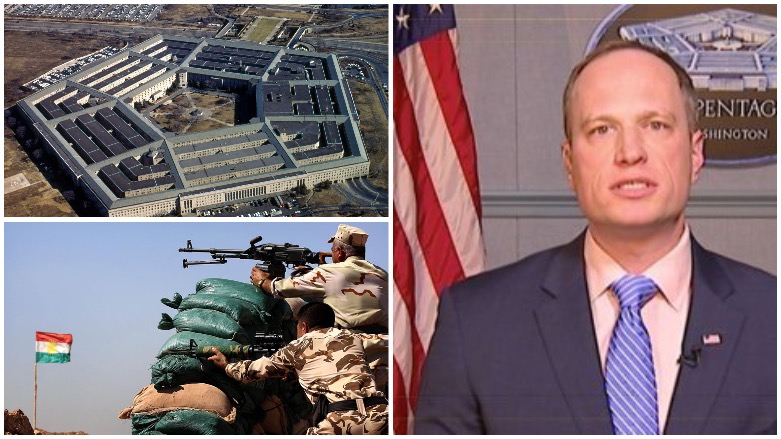No decision on Peshmerga support in US Defense budget

WASHINGTON DC, United States (Kurdistan 24) – Speaking with Kurdistan 24, Eric Pahon, a Pentagon spokesperson, explained that the administration has not decided on whether to include a special category for Peshmerga salaries and other support in the budget for the next fiscal year that the Defense Department recently sent to the US Congress.
A dramatically negative headline in a Washington DC website dealing with the Middle East and picked up by some Kurdish media (“Pentagon stops budgeting for Peshmerga salaries”) gave a misleading impression, reflecting a misunderstanding of US budgeting procedures, as well as an earlier statement made by Pahon.
As Pahon explained to Kurdistan 24, the budget, as sent to Congress, is merely a request for funding.
Thus, it is “too early” for the Defense Department to get into the details about how much of the sum that Congress approves will go to the Iraqi Security Forces and how much will be specified for Peshmerga, assuming that such an allocation remains in the next budget, Pahon stated.
The budget request as sent to Capitol Hill was presented in “broad brush strokes,” he explained. “Once Congress approves the budget appropriation, then we’ll get into more specifics.”
Al-Monitor reported that Pahon had said that the budget “documents do not specifically refer to training/stipends for the Peshmerga.”
That is correct, but the statement itself does not address—one way, or the other—what will happen next: i.e., whether a specific allocation for the Peshmerga will be added later, as would be the standard procedure.
The Islamic State (IS) has largely been defeated as a conventional force, holding territory in Iraq. Thus, the Peshmerga role in fighting IS has largely ended, and along with it, the “advise and assist” role of US soldiers who supported the Kurdish efforts in fighting and defeating the extremists.
However, as Col. Ryan Dillon, Spokesperson for the Combined Joint Task Force-Operation Inherent Resolve (CJTF-OIR), told Kurdistan 24 in December, the coalition training of the Peshmerga will continue.
Moreover, much may hinge on future developments in Baghdad. With the military defeat of IS, calls are growing among pro-Iranian elements in Iraq for the US to leave the country, and some of those calls are accompanied by threats to US forces.
Unconfirmed reports in the Arabic press claim that the US has already given orders that the Shia militias, known as the Popular Mobilization Forces (PMF), must stay at least 20 kilometers away from any base where US soldiers are present.
If that trend continues, a closer alliance with the Peshmerga, and the funding to support it may appear to US decision makers as a prudent step to take.
Editing by Karzan Sulaivany
